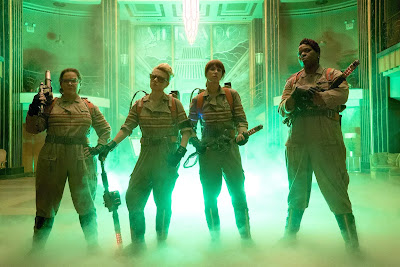 |
| Miles Davis in Miles Ahead |
I just want to say up front that I am an enormous Miles Davis fan and I couldn't -- and still can't -- think of an actor better suited to play him on the big screen.
Also, I must admit I didn't have any specific expectations for this film. I have long felt the biopic genre -- particularly the musical biopic --has become extremely boring and predictable.
So I guess, if I had a hope for Miles Ahead it was that it would break from some of the cliches of this type of film and maybe evoke the same cool improvisational power of Davis' music, which I imagined would be hard to portray effectively in a traditional narrative film.
For better or worse, Miles Ahead tries to do both with varying degrees of success. The film's script makes some choices -- like centering most of the narrative on arguably the darkest period of Davis' life, his self imposed, drug fueled exile in the late 1970s -- that will probably alienate hardcore fans. And it probably spends more time talking about Davis' genius than showing it.
Still, the biggest takeaway for me from this film was how under-appreciated and brilliant an actor Don Cheadle is. The movie itself is probably too hit-or-ccmiss to be much of a critical or commercial hit, but here is an actor who once again is showing off what a singular talent he is.
That he strongly resembles Davis is perhaps a given, but through a spot-on vocal performance and jaunty physicality, Cheadle brings him to life. Despite his status as a musical icon, Davis' mysterious, taciturn nature made him pretty inaccessible to the public while he was alive. With this film, Cheadle seeks to rip off the veneer and show a man who is both charming and irredeemably coarse.
He doesn't entirely succeed. Like far too many films about a dynamic real-life personality, Miles Ahead suffers for trying to do too much in too little time. Although Emayatzy Corinealdi is radiant as Davis' first wife Frances, we're never sure why she apparently became such a lifelong touchstone for the trumpeter. And the presence of Ewan McGregor, as a fictionalized Rolling Stone reporter, feels almost like studio counter-programming to assuage audiences who might otherwise be turned off by a predominately black movie.
When the focus is on the music itself, the movie occasionally soars, and Cheadle clearly has a great grasp of Davis' prolific output of albums. And Cheadle reportedly took trumpet lesson to play Davis' licks himself. If that is really him playing on screen and not a recording, his mimicry is uncanny.
For some reason, after his Academy Award nominated lead turn in Hotel Rwanda, Cheadle has been largely relegated to supporting roles for the last decade or so. Sure, he plays the lead role on Showtime's House of Lies, but far more people have seen him play second banana to Robert Downey, Jr. in two Iron Man films. And the trailers for Captain America: Civil War strongly implicate that he's getting killed off from the Marvel universe.
After a series of terrific performances in films like Devil in a Blue Dress, Traffic, Out of Sight, Bullworth and even the Ocean's movies, Cheadle deserves roles that could put him in the potential Oscar winner's circle again. This may not be the film to do it, but by giving him more to do, it's a step in the right direction.























